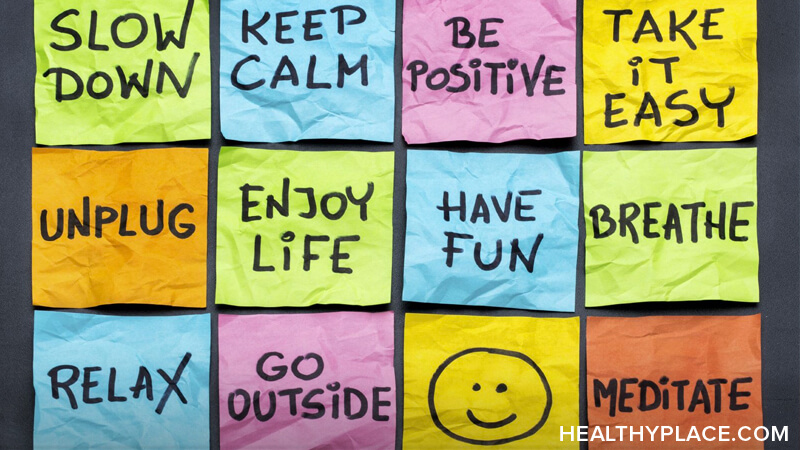How to Respond When Mental Health Advice Feels Like Judgment

Unsolicited mental health advice can contribute to the judgment and stigma we face as people with mental illnesses, even when it comes from a place of good intentions. Opinions about what we should or shouldn't do for our mental health can come off as judgmental, especially when those opinions minimize the time, effort, and research we have put into our choices.
People want to help by telling us which medications we should take, that we shouldn't take medications at all, which foods we should eat, or which spiritual practices we should try. The unwanted advice-givers offer their opinions as facts, assert themselves as experts on your situation, and discount your own lived experiences in favor of their own. Even though they want to help, their methods don't have the intended effect.
Using Assertiveness to Respond to Unwanted Mental Health Advice That's Really a Judgment
This topic may not seem significant to those who don't relate, but for those of us who hear these types of comments regularly, it can become exhausting and frustrating over time. We get tired of responding to other people's opinions on our lives.
I try to use assertive communication and set boundaries in response to unwanted advice. It is easy to become annoyed or defensive of our choices in the moment, but preparing a statement ahead of time to respectfully shut down these conversations can help when the time comes.
If they continue to criticize your choices or push their own opinions on you, you can let them know that you appreciate their concern and will consider their advice, but you have your own way of handling things after considering many options and deciding which is right for you. I try to validate their intentions while also asserting myself as the expert on my own life.
Hear more about this topic in the video below. Does unwanted mental health advice feel like judgment to you? What types of unwanted advice do people give you? Tell me about your experience in the comments below.
APA Reference
Sabatello, J.
(2021, February 22). How to Respond When Mental Health Advice Feels Like Judgment, HealthyPlace. Retrieved
on 2026, March 5 from https://www.healthyplace.com/blogs/relationshipsandmentalillness/2021/2/how-to-respond-when-mental-health-advice-feels-like-judgment
Author: Juliana Sabatello
Question…I see my daughter starting a downward spiral with her mental disorder. She has had eight good years now with the correct medication and great therapy. A couple of years ago when I saw this and I asked if she ever had her meds adjusted because she might look at it, she had taken it well and did indeed need an adjustment. This time, she has shunned me. She is 40 years old.
Even some of the best-intentioned advice can sometimes feel like too much or just plain judgmental. While this is not uncommon it's is wonderful to see conversations like these. Assertive communication and boundaries are both fantastic tools to not only empower in these types of situations but help to make it clear that this kind of "advice" is not coming across as helpful.
Absolutely. I think a lot of us learned to keep quiet when someone intrudes by being too pushy with suggestions or invalidates us with unhelpful advice, but we aren’t true to ourselves when we’re disrespecting our own boundaries. Thanks for your comment!
